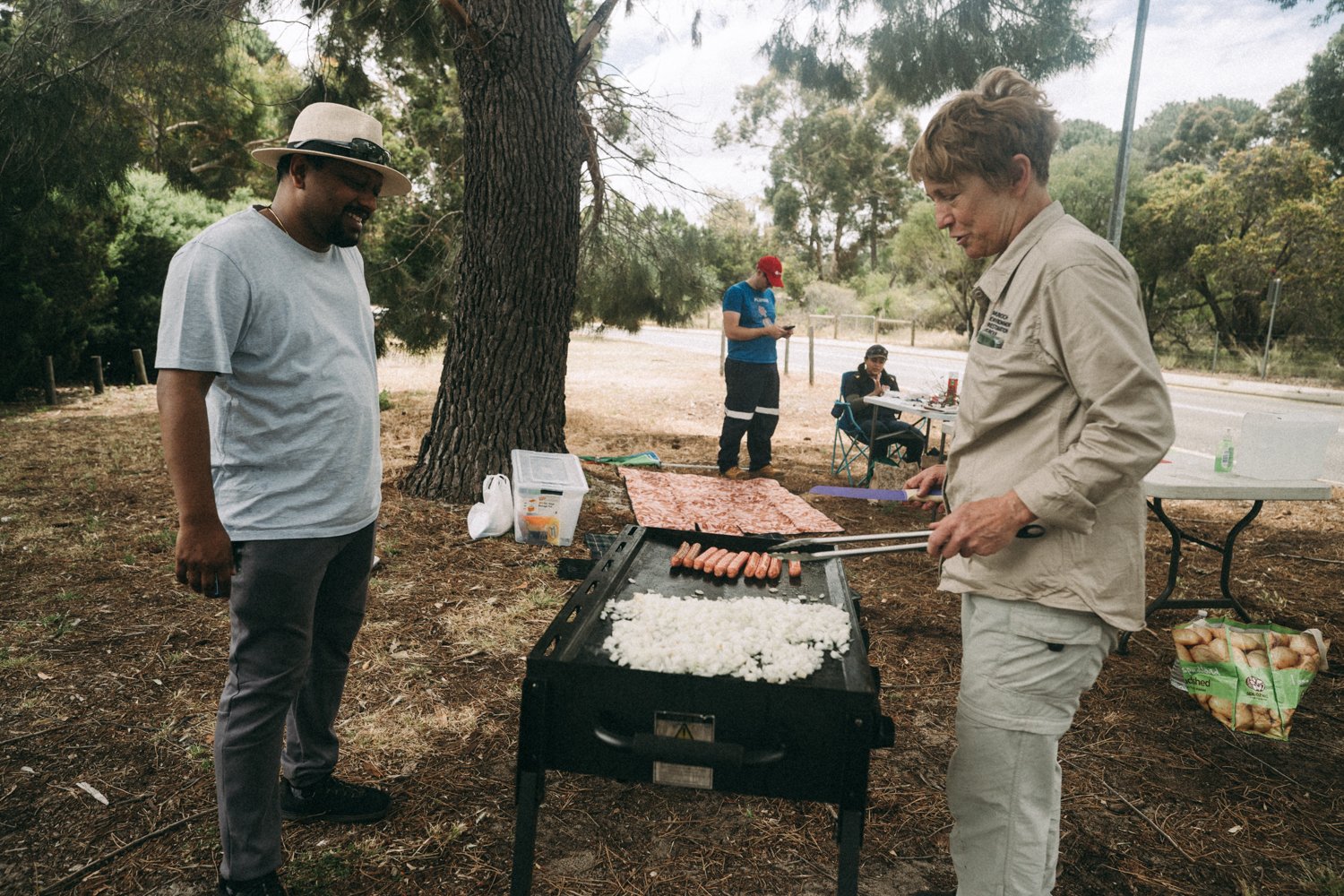Land and Mind Restoration Day at Murdoch University
On Saturday the 6th of November, ten people ventured into the Murdoch bushland to combat the invasive weeds that have been encroaching the area. Sustainability Manager,- Leah Knapp from the Murdoch Environmental Restoration Group (MERG) guided this volunteering experience, with the help of Melissa Dor, Rotary Elizabeth Quay’s Vice President, and Ashleigh Vaughan, Rotary Elizabeth Quay’s Intern from Murdoch University.
The purpose of this volunteering event was to enhance the connection between the environment and the mind. Humans are part of the world’s ecosystems, which may explain why being in nature has positive impacts on our mental well-being. Studies show that getting into nature has many benefits for physical, social, and mental health (Government of South Australia, 2021). It has been shown to evoke positive emotions and is restorative for those recovering or suffering from mental health issues (Government of South Australia, 2021).
The event commenced at 9:00 am, where the volunteers followed Leah into the bush (after brushing off their shoes to stop unwanted soil-born pests from being spread). Ryan (a volunteer from Murdoch) showed us a scrapbook of introduced and invasive plants which we aimed to remove including the Victorian Tea Trees and the Sydney Golden Wattles. The volunteers separated into three groups, where they then scoped the bushland, bin bags in hand. Some of the weeds were small and could be pulled out by hand, and others were so big they needed a heavy-duty tree popper lever. A large group of invasive pig-face succulents were also found and required all ten volunteers to work together to pull them out.
After all of the bags were full, the group took some time to rest, eat a barbeque lunch, and partake in a mental health activity led by Melissa. This activity involved fashioning mini planter pots out of air-clay and painting twigs into mini blue trees for the pots. Blue trees have become symbolic of prevention of suicide, and the activity gave volunteers a time to reflect on how reaching out to friends can sometimes help save a life.
By partaking in this ecosystem mental health care activity, the volunteers felt connected to each other, the commmunity and the lands which support our lives.










































